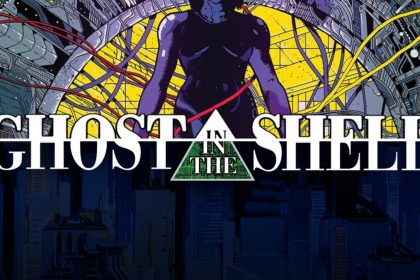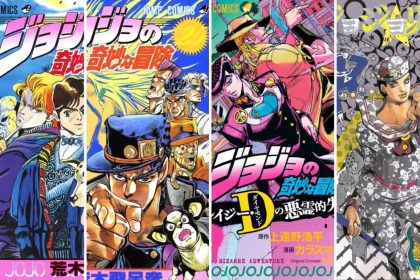The magical girl genre in anime and manga has captivated audiences for decades with its unique blend of fantasy, adventure, and coming-of-age narratives. From its humble beginnings to its modern-day iterations, the evolution of this particular genre has been an intriguing journey that reflects the changing tastes and sensibilities of its audience. In this article, we will explore the origins of this genre, examine classic and modern series, discuss the genre’s impact on popular culture, delve into controversies and criticisms, and speculate on its future.
The Origins of the Magical Girl Genre
A magical girl is a character, typically a young girl, who possesses magical powers and uses them to fight against evil forces. She often undergoes a transformation and dons a magical outfit when engaging in battle.
This genre draws inspiration from various mythologies, folklore, and classic literature. Early influences can be traced back to the Japanese legend of the “sorceress princess,” which featured a young girl with magical powers who fought against evil forces. However, it was not until the 1960s that the genre gained prominence with the introduction of anime series like “Sally the Witch” or “Mahoutsukai Sally.” These pioneering series set the foundation for what would become a beloved and enduring genre.
Classic Magical Girl Series
The magical girl genre reached new heights of popularity in the 1980s and 1990s with the emergence of classic series that left a lasting impact on the genre. Iconic examples such as “Sailor Moon” and “Cardcaptor Sakura” not only became cultural phenomena but also showcased the genre’s core themes of friendship, love, and self-discovery. These series often featured young girls who transformed into powerful heroines and fought against supernatural forces, while also navigating the challenges of adolescence and personal growth.
The Modern Magical Girl
In recent years, this genre has undergone a transformation, diversifying into subgenres that appeal to a wider range of audiences. These subgenres explore different themes, settings, and character archetypes. For example, the “magical girl warrior” as a subgenre focuses on action-packed battles, while the “magical girl idol” subgenre combines magical abilities with the world of music and entertainment. Additionally, modern series have embraced more complex and nuanced storytelling, tackling social issues and exploring deeper characterizations.
Exploring Mature Themes in Modern Magical Girl Series
One notable example of a modern magical girl series that explores mature themes is “Puella Magi Madoka Magica.” This critically acclaimed groundbreaking series takes a darker and more psychological approach. Challenging traditional expectations of the genre. It delves into themes of sacrifice, despair, and the consequences of making deals with supernatural entities. The series subverts the notion of girls characters as symbols of hope and innocence. Instead presenting a bleak and emotionally intense narrative that forces viewers to question the true cost of their desires.
Another series that delves into mature themes is “Yuki Yuna is a Hero.” This series combines elements of tragedy and sacrifice. Exploring the emotional struggles and personal sacrifices that the characters must endure in their fight against darkness. It tackles themes of duty, selflessness, and the heavy burden of being a hero. By delving into the complexities of heroism and the toll it takes on the characters, “Yuki Yuna is a Hero” offers a nuanced and emotionally resonant portrayal of the magical girl genre.
Impact of Magical Girl Genre
This genre has had a significant impact on popular culture. Not only in Japan but also worldwide. The success of series like “Sailor Moon” helped popularize the genre globally and inspired the creation of countless magical girl-themed merchandise, spin-offs, and adaptations. Furthermore, the genre’s influence can be seen in other media. With elements of magical girls appearing in Western animation, comics, and even live-action television shows. This genre has become a cultural touchstone, transcending boundaries and captivating audiences of all ages and backgrounds.
Controversies and Criticisms
Despite its popularity, the magical girl genre has faced criticisms and controversies over the years. Some argue that the genre perpetuates gender stereotypes by portraying girls as weak and in need of male assistance. However, many modern series have challenged these stereotypes. Usually by featuring strong and independent female protagonists. Additionally, there has been a rise in darker and edgier magical girl series. One that explore mature themes and incorporate elements of horror and psychological storytelling. Which appealing to a more mature audience.
Future of the Magical Girl Genre
The future of the magical girl genre looks promising, with promising new trends and innovations on the horizon. As the genre continues to evolve, we can expect to see more diverse representation, exploring different cultural perspectives and identities. Furthermore, the global popularity of the this genre is likely to grow. With more international collaborations and adaptations. The genre’s ability to resonate with audiences on a personal and emotional level. Ensuring that it will continue to captivate and inspire future generations.
Conclusion
The magical girl genre has come a long way since its humble beginnings. Captivating audiences with its enchanting tales of young heroines and their transformative journeys. From classic series that defined the genre to modern iterations that push the boundaries of storytelling. This genre has left an indelible mark on popular culture. Despite controversies and criticisms, the genre’s ability to evolve and adapt ensures its longevity and continued relevance. As this genre continues to evolve, it will undoubtedly enchant and inspire audiences for years to come.
This genre has undergone a remarkable transformation in recent years, embracing mature themes and captivating older audiences. Modern series such as “Puella Magi Madoka Magica,” “Yuki Yuna is a Hero,”Magical Girl Raising Project,” and “Daybreak Illusion” have pushed the boundaries of the genre, offering more complex narratives that delve into dark and thought-provoking themes. By exploring the emotional struggles, moral dilemmas, and the consequences of power, these series have breathed new life into the genre, captivating viewers with their depth and engaging storytelling. As the genre continues to evolve, we can always expect to see even more fascinating and mature explorations of this genre in the future.













